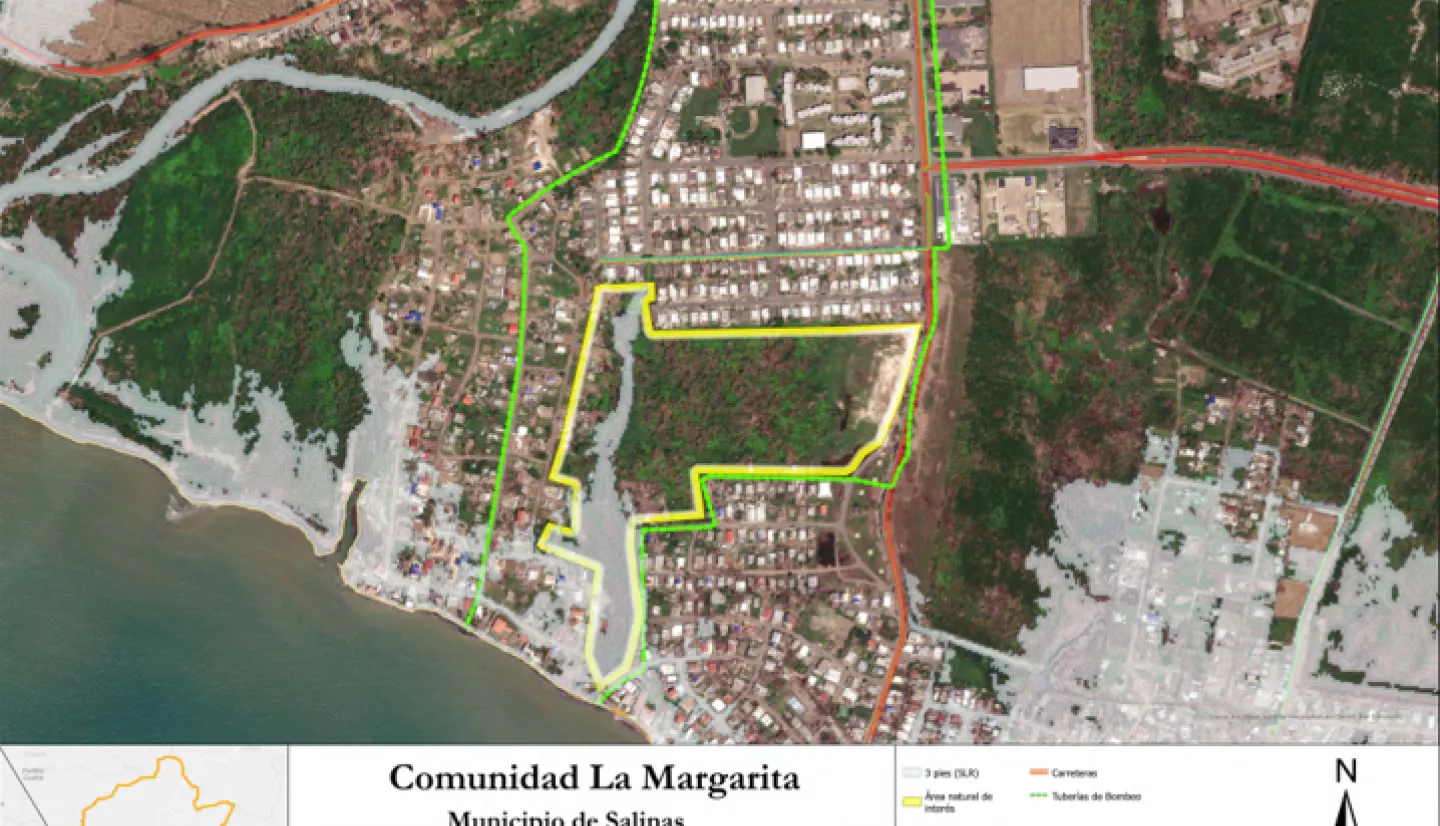Leveraging Earth Observation Data to Support Environmental Justice: A Puerto Rico Coastal Community Case Study
Team: Dr. Stephen Flynn (GRI), Fernando Pabon Rico (PRSTRT), Dr Kristin Raub (GRI/CUAHSI), Dr. Josh Laufer (GRI), Angie Valencia (GRI), Shemie Daniels (GRI), Fernando Pabón Rico (PRSTRT), Dr. Omayra Rivera (PRSTRT), Gilberto Guevara (PRSTRT), María G Méndez Guijjaro (PRSTRT), and Dr. Carissa Cabán (PRSTRT)
Executive Summary: PRSTRT project team members partnered with a group of the primarily elderly Puerto Ricans who reside in the La Margarita neighborhood in the coastal community of Salinas, PR. Many of the interviewees came from disadvantaged backgrounds and were directly impacted by Hurricanes Maria (2017) and Fiona (2022). The participants were asked to identify community environmental justice concerns that NASA EO tools might usefully help to address. GRI and PRSTRT organized and co-hosted a collaborative community session in the La Margarita Community Centre on Jul 15, 2023, that brought the interviewees together to provide feedback on what they had shared. The community expressed a sense of being powerless in the face of land (mis) use practices that exacerbate flooding risk associated with extreme weather. The session introduced them to NASA EO tools followed by an interactive discussion on how NASA-generated data, when combined with local data, could empower them in overcoming their EJ challenges. Community stakeholder feedback, to include actionable steps for improving their sustainable and equitable community resilience, are being incorporated into the final report. The project will conclude in fall 2023.
This project consists of three phases: (1) Interviews with local stakeholders to better understand the environmental justice landscape of their community and their experience with NASA data; (2) a collaborative session to engage in co-learning with the community to develop adaptation pathways, identify barriers to adaptation, and to establish a method in which community members prefer to be engaged by outside agencies/organizations; and (3) reporting and project wrap-up that provides the community with agency over the outcomes. The three phases have been developed to provide NASA with an understanding of specific environmental justice concerns for which its data might be usefully applied, to identify barriers to the use of that data, and to provide recommendations on ways that NASA could equitably aid communities in overcoming these barriers. The project aims to provide a pathway for future community engagement that supports calibrating federal resources to more effectively support communities facing environmental injustices. This pathway will include a specific set of actions that NASA can take for future data applications.
In Salinas, this project will increase the awareness and understanding of environmental justice and NASA data and services. Most notably, the study will help community members develop strategies to employ NASA data to impact their most pressing environmental justice concerns in collaboration with the research team members. Additionally, the community will be empowered to design the method in which they would like to be engaged by outside agencies and organizations. The project will provide a helpful foundation for Salinas to engage in future collaborative work on EJ issues with other organizations. Additionally, the strategies Salanis develops for how NASA EO (Earth Observation) data could impact environmental justice concerns can be applied in communities that face similar issues.
